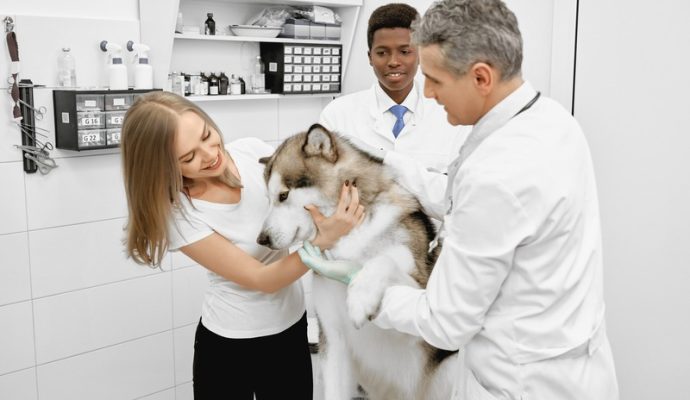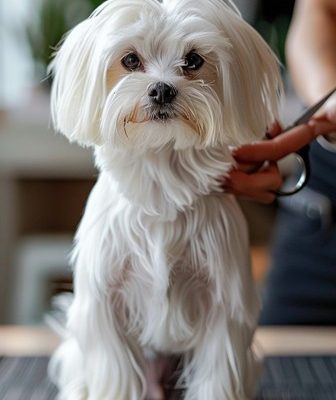As our furry friends grow older, they require special attention and care. Knowing how to navigate the challenges of geriatric pet care is essential for their well-being. In this guide, we’ll discuss the various aspects of caring for aging pets, from recognizing signs of aging and adjusting their nutrition, to providing mental stimulation and managing joint health. Let’s explore the ways we can make our senior pets’ golden years as comfortable and happy as possible.
Recognizing signs of aging in pets
Physical and behavioral changes
As pets age, they may display a variety of physical and behavioral changes. Their coat may turn grey, they might gain or lose weight, and develop mobility issues. Additionally, older pets may become less active, experience changes in their sleep patterns, or even show signs of cognitive decline. Recognizing these signs helps us adapt our care to their evolving needs.
Adapting care for aging pets
Paying attention to your pet’s age-related changes and communicating with your veterinarian is crucial in adapting their care. Regular check-ups, a tailored nutrition plan, exercise modifications, and mental stimulation can all contribute to keeping your senior pet healthy and happy.
Nutrition for geriatric pets
Dietary needs of older pets
The nutritional requirements of geriatric pets differ from those of younger animals. A slower metabolism and reduced activity mean they need fewer calories, while specific nutrients like joint supplements, antioxidants, and omega-3 fatty acids are essential for maintaining their overall health. Consult your veterinarian to create a diet plan that caters to your senior pet’s unique needs.
Managing weight in elderly pets
Proper weight management is crucial in supporting your aging pet’s health. Obesity can exacerbate existing health issues, such as joint pain and respiratory problems. Monitoring your pet’s weight and implementing a balanced diet, combined with portion control, will help prevent obesity and associated health risks.
Exercise and physical health for senior pets
Importance of activity in geriatric pets
While older pets may become less active than when they were younger, maintaining mobility and regular exercise is essential for preserving their health, both physically and mentally. Exercise prevents obesity and muscle atrophy, while also encouraging circulation and keeping their joints flexible.
Adapting exercise routines for older pets
When planning activities for your senior pet, consider: 1. Providing low-impact exercise such as short walks or swimming. 2. Regularly playing with toys suitable for elderly pets. 3. Monitoring their activity, adjusting it depending on their energy levels and physical abilities.
Preventive care in geriatric pet health
Regular veterinary visits
Routine visits to the veterinarian are vital in addressing age-related health issues and ensuring your geriatric pet receives appropriate care. In addition to monitoring their overall health, your vet can update vaccinations and prescribe necessary treatments for any identified conditions.
Emergency vet services
In case of an emergency, it’s crucial to know where to find a reliable emergency vet. Quick access to expert care can make a significant difference in your pet’s well-being during a crisis.
Monitoring for age-related conditions and diseases
Routine veterinary check-ups enable early detection and management of age-related conditions, such as arthritis, heart disease, or diabetes. Early intervention yields more effective treatment, contributing to a better quality of life for your elderly pet.
Dental health in senior pets
Common dental issues in older pets
Dental health is an important aspect of geriatric pet care, with many older pets experiencing issues such as gum disease, tooth loss, or tartar buildup. Regular dental screenings enable prompt identification and treatment of these conditions.
Maintaining oral health in geriatric pets
To support your senior pet’s dental health: 1. Brush their teeth regularly. 2. Offer dental chews or toys designed to remove plaque and tartar. 3. Consider adding safe dental additives to their drinking water.
Cognitive and mental health in older pets
Dealing with cognitive decline and dementia
Cognitive decline and dementia are common challenges in geriatric pets, manifesting as disorientation, confusion, or increased anxiety. Recognize these signs early, and consult your veterinarian to develop strategies for managing and improving your pet’s cognitive health.
Providing mental stimulation and socialization for elderly pets
Maintaining mental stimulation is vital for all stages of your pet’s life, including their senior years. Engage your pet with: 1. Interactive toys, puzzles, and games. 2. Safe and controlled socialization with other pets and people. 3. Enriching environments that encourage exploration.
Geriatrics
For additional insights on geriatric pet care, read more from expert sources, such as veterinary articles, books, and online resources.
Joint health and arthritis management in geriatric pets
Common joint problems and arthritis in aging pets
Joint issues like arthritis are frequent challenges for elderly pets, causing pain, stiffness, and reduced mobility. Recognizing and addressing these issues early is vital for maintaining your pet’s overall comfort and well-being.
Treatment options and managing joint health
Managing arthritis and joint issues in geriatric pets involves: 1. Providing medication prescribed by your veterinarian. 2. Offering joint supplements and following a balanced diet. 3. Ensuring your pet has a supportive and comfortable environment.
Pet internal medicine
In some cases, further expertise might be required for your pet’s health. At Statesboro Bulloch Regional Veterinary Hospital, you can find internal medicine specialists who offer advanced diagnostics and treatments for your geriatric pet’s needs.
End-of-life care for elderly pets
Recognizing the need for end-of-life care
As your pet reaches the end of their life, providing comfort and support becomes increasingly important. Recognize when changes in your pet’s quality of life indicate the need for end-of-life care, and consult your veterinarian to discuss available options.
Providing comfort and support in the final stages
Create an end-of-life care plan alongside your veterinarian, ensuring your pet is pain-free and comfortable throughout their remaining days. This plan may include pain management, emotional support, and environmental adaptations tailored to your pet’s specific needs.
Conclusion
Navigating the challenges of geriatric pet care requires understanding, patience, and empathy. By staying informed and proactive, we can ensure our senior pets live out their golden years in comfort and happiness. Remember to consult your veterinarian and adapt your pet’s care to their evolving needs to provide the best possible care.




